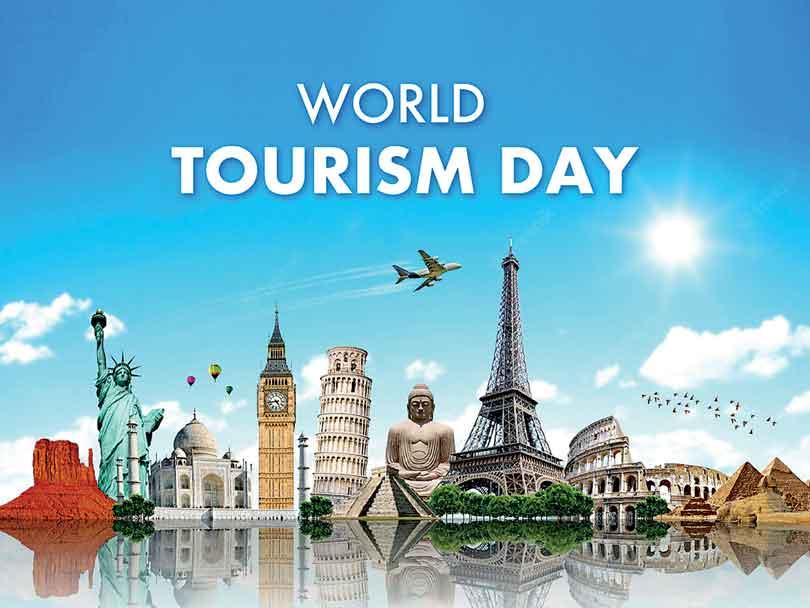
World Tourism Day, celebrated every year on September 27, is a global observance established by the United Nations World Tourism Organization (UNWTO). It aims to raise awareness about the importance of tourism and its social, cultural, political, and economic value. The day also highlights how tourism contributes to achieving the Sustainable Development Goals (SDGs) by promoting inclusive growth, environmental protection, and cultural preservation.
The Origins of World Tourism Day
World Tourism Day was first celebrated in 1980, marking the anniversary of the adoption of the UNWTO Statutes in 1970. The decision to dedicate a day to tourism came from a recognition that the industry was becoming a powerful global force. Since then, World Tourism Day has been celebrated annually, each year hosted by a different country and centred around a specific theme. These themes reflect current global challenges and opportunities, such as digital transformation, sustainable development, and community empowerment, ensuring that the celebration remains relevant and forward-looking.
Tourism as a Driver of Economic Growth
Tourism is one of the world’s largest and fastest-growing industries, accounting for around 10% of global GDP and providing one in every ten jobs worldwide. It plays a critical role in both developed and developing countries by generating income, creating employment, and stimulating investment in infrastructure. For many small island nations and developing economies, tourism serves as a primary source of foreign exchange and a vital driver of economic diversification. Beyond direct economic benefits, tourism also supports local businesses, from hotels and restaurants to artisans and transport services. The industry fosters entrepreneurship and encourages the growth of small and medium enterprises (SMEs), which are essential for economic resilience and innovation.
Cultural Exchange and Global Understanding
World Tourism Day also celebrates tourism’s role in promoting cross-cultural understanding and global peace. By encouraging people to explore different places, traditions, and ways of life, tourism bridges cultural divides and fosters mutual respect. It allows travellers to appreciate the richness of human diversity, while host communities gain a broader worldview through interactions with visitors. This exchange of cultures promotes tolerance and empathy, key ingredients for peaceful coexistence in an increasingly interconnected world. Through responsible and respectful travel, tourists become ambassadors of global citizenship, strengthening international solidarity and cooperation.
Environmental and Social Dimensions
However, the celebration of tourism must also come with reflection. As the industry grows, so does its impact on the environment and local communities. Issues such as over-tourism, pollution, habitat destruction, and cultural commodification have raised questions about sustainability.
World Tourism Day serves as a platform to address these challenges and promote responsible tourism practices that minimize negative impacts while maximizing benefits for people and the planet. In recent years, the UNWTO has emphasized sustainable tourism, travel that respects the environment, supports local economies, and preserves cultural heritage. Ecotourism, community-based tourism, and green travel initiatives are examples of how the sector can evolve to align with sustainability principles. By promoting conscious consumption and ethical travel behaviour, World Tourism Day inspires both tourists and industry stakeholders to protect the destinations they cherish.
Tourism in the Post-Pandemic World
The COVID-19 pandemic profoundly affected global tourism, bringing international travel to a standstill and impacting millions of livelihoods. Yet, the crisis also offered an opportunity to rethink and rebuild tourism in a more resilient and sustainable way. The recovery phase has highlighted the importance of domestic tourism, digital innovation, and community participation in shaping the future of the industry. World Tourism Day now serves as a reminder of the sector’s resilience and its potential to drive recovery through inclusive, green growth.
World Tourism Day is more than just a celebration of travel; it is a recognition of tourism’s power to transform economies, protect cultures, and connect people across the globe. It reminds us that travel, when managed responsibly, can be a force for good, fostering sustainable development, environmental stewardship, and intercultural understanding. As the world continues to navigate global challenges, World Tourism Day stands as a call to action for governments, businesses, and travellers alike to make tourism a pillar of peace, prosperity, and sustainability for all.










